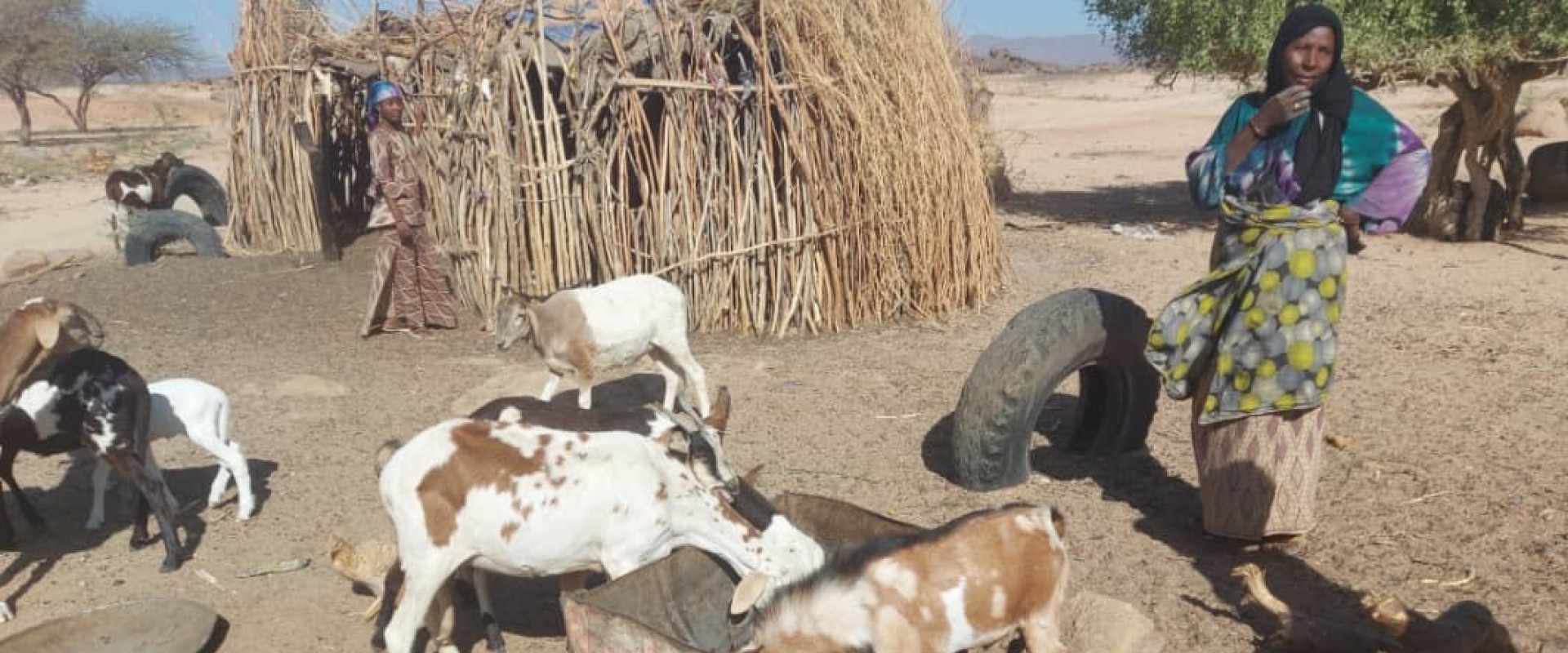Supporting Sustainable Livelihoods in pastoral areas in Tabelot
"I lived through the latest floods with sadness and bitterness. I lost all my livestock, due to an outbreak of an epizootic disease caused by the floods, my belongings and other household utensils and food stocks," says Balala Hassane.
Balala Hassane is a 45-year-old visually impaired woman. She lives in the commune of Tabelot, located 150 kilometres east of the town of Agadez on the main migration route to Dirkou. Her husband is a municipal police officer at the border with Libya. His incomes do not allow him to support his family. So, Balala has to provide for her three children and her sister's family.
"With my disability and my husband not around, I didn't know what to do to feed my children and my sister's children. So, I started livestock farming in 2019 which has supported me to make a living," says Balala.
In July 2021, during the rainy season, Tabelot was hit by heavy flooding and an epizootic disease that devastated the livestock of several households.
This phenomenon comes as a "final blow" for Balala and other families in Tabelot., many of whom lost their source of income after the passing of Law No. 36 in 2015 criminalizing migrant smuggling and irregular migration. The commune relied heavily on the income generated by activities linked to the abundant migratory flows coming through Tabelot on the way up and down from Libya, such as the hospitality sector. Many residents switched to agriculture, trade, and livestock farming, enabling them to meet primary needs, such as food, health, and education.
Therefore, in July 2021, local authorities requested the support of the International Organization for Migration (IOM) for households affected by the floods. The Organization is already very active in the area through its community stabilization programme which is implemented in close partnership with local authorities, traditional leaders and other members of the community.
In August 2021, IOM provided 600 sheep and goats to 100 vulnerable people, including 50 women. This support specifically targeted unemployed women and youths and people living with disabilities.
"I received four goats, one ewe and one ram," said Balala, who benefited from the initiative. "This livestock allows me to produce milk that I can sell."
"It is important to continue to assist vulnerable communities who have been affected by the changes in migration laws," says Barbara Rijks, IOM Niger Chief of Mission. "We are working closely with the authorities and communities to restore their livelihoods in the medium and long term. In this way, hopefully, local communities will soon be thriving again and sufficiently independent."
In the Agadez region, IOM has been implementing its community stabilization programme since 2017 which aims to improve community resilience and social cohesion, consolidate peace through dialogue mechanisms, and improve populations' access to economic opportunities.
This support was carried out through the EU-IOM Joint Initiative for the Protection and Reintegration of Migrants funded by the European Union Trust Fund for Africa.
